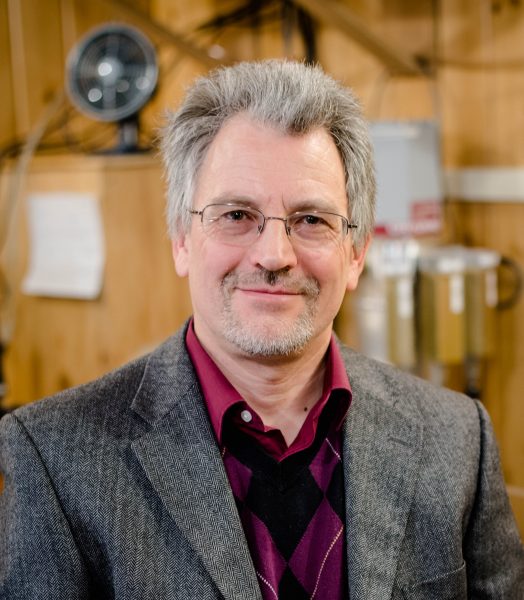
The College of Engineering at Michigan Technological University is pleased to announce that Aleksey Smirnov has accepted the position of chair of the Department of Geological and Mining Engineering and Sciences, beginning July 1, 2020.
Smirnov joined Michigan Tech as an assistant professor of geophysics in 2007, teaching undergraduate and graduate courses in Plate Tectonics and Global Geophysics, Planetary Geology and Geophysics, and Fundamentals of Applied and Environmental Geophysics.
His research interests include the long-term evolution of the Earth’s magnetic field and its geological and geodynamical implications. Deciphering the early history of our planet—including the early history of its geomagnetic field—represents one of the great challenges in Earth science.
Smirnov seeks to substantially increase the amount of reliable data on the Precambrian field by applying new experimental approaches to investigate the fossil magnetism of well-dated igneous rocks around the globe. He also investigates geodynamics and global plate tectonics, magnetism of rocks, minerals, and synthetic materials, environmental magnetism, and develops new techniques and instruments for paleomagnetic and rock magnetic research. His work on the early magnetic field history has been supported by several NSF grants including a 2012 CAREER award.
“I am delighted that Dr. Smirnov will be Chair of GMES and looking forward to him joining the leadership team of the college,” states Dean Janet Callahan. “His experience as a faculty member and long-term perspective of the department will be something he can strongly leverage as he works to grow the research profile of the department and student enrollment.”
Professor John Gierke led the department as chair for two terms, or six years. “We are grateful for Dr. Gierke’s leadership,” says Callahan. He is also a tremendous teacher and researcher, and is looking forward to giving both his full attention once again.”
After receiving his BS in Geophysics from Saint-Petersburg State University (Russia) in 1987, and his PhD in Geophysics from the University of Rochester in 2002, Smirnov conducted postdoctoral studies at the University of Rochester, and at Yale University. At Michigan Tech, he is also affiliated with the Department of Physics.
What first brought you to Michigan Tech?
Our University has been renowned for its geophysical research, including my own field of paleomagnetism, for many years. The opportunity for collaboration with such an accomplished academic community played an important role in my decision. In addition, Michigan’s Upper Peninsula and the surrounding regions have a rich geologic history with some of the oldest rocks on Earth. This makes it a prime geological location to study the evolution of the early Earth’s geomagnetic field, which is one of my main research interests. After 13 fruitful years at Michigan Tech, I know I made the right choice.
What do you enjoy most about your research and teaching?
I have established a robust research program that involves worldwide collaborations and has yielded some important results. However, the most enjoyable part of both my scientific research and classroom teaching at Michigan Tech has been my interaction with students. My research activities provide excellent opportunities for student research and academic instruction, and I have been able to work together with very talented graduate and undergraduate students.
What are you hoping to accomplish as chair?
I envision a vibrant and diverse department that is nationally and internationally recognized for its excellence in education and research. I intend to assure our position as a proactive, efficient, and respected participant in the efforts of both the College and the University as we strive towards our shared strategic goals, including student enrollment, research, diversity, and external recognition.
Our department has evolved over time to meet the needs of our ever-changing world, but it has been and remains an integral part of Michigan Tech since its foundation in 1885. As chair, I will be honored to uphold this legacy of excellence and distinction into the future.